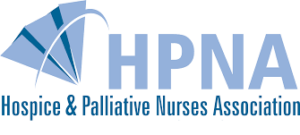Hospice and palliative care nurses work in a care giving space that is often difficult and foreign for most families, friends, and other caregivers. With a compassionate approach, experience gained from helping others who are at the end of their lives, and valuable professional knowledge, hospice and palliative care nurses become a guide for patients and their loved ones.
According to the Hospice & Palliative Care Federation of Massachusetts, patients may choose to have hospice and palliative care when their life expectancy from a terminal illness is six months or less. Hospice care’s goal is different from the other medical care that a patient has been receiving for their illness. Shifting from a treatment-oriented approach to a comfort-based and dignity-focused care model, hospice aims to make the patients remaining days as comfortable as possible.
Hospice and palliative care nurses work with patients at the end of their lives, developing close bonds with the patient and the patient’s loved ones. Although hospice and palliative care nurses work with people during their very last days, it’s most helpful if they become involved as early as is possible. Even if a family is familiar with hospice and palliative care, each patient’s treatment, medical needs, and expectations are different. Nurses in this specialty help families plan for specific aspects of care and anticipate the patient’s needs. With this kind of planning, the patient’s quality of life is higher, families are more prepared for what will happen, and more time can be spent with personal interactions.
Nurses in this career path or who are interesting in working as a hospice nurse can find excellent career resources through the Hospice & Palliative Nurses Association, Hospice & Palliative Nurses Foundation, and the Hospice & Palliative Credentialing Center. Whether looking for a course to boost skills or knowledge or a community of other hospice and palliative care nurses, these associations are dedicated to elevating this nursing practice. Depending on your focus area (pediatrics or adult) and your background (RN or APRN), nurses may also find information about how to become certified. Certification brings a professional expertise to a nurse’s work and allows providers to offer the best possible nursing care. Through these associations, nurses can attain leadership positions, connect with fellow hospice and palliative care nurses, or even listen to (or create your own!) podcasts.
Although hospice and palliative care nurses work with patients who aren’t expected to live more than six months (although some do live much longer), many say the work they do is sad, but also filled with meaning. Because this is their focus, hospice and palliative care nurses are able to guide patients and families through the unfamiliar process. They learn how to navigate the emotional, physical, and spiritual landscape that comes with an intensely personal journey. With their expertise and knowledge, they are able to educate those who are caring for, visiting, or otherwise interacting with the patient. But this period in a person’s life also allows the nurse/patient bond to grow strong, even in a shortened time frame. This kind of rewarding work is one that offers nurses the ability to make the kind of change they hope for when they first begin their nursing careers.
- Is the FNP Program Right for You? - April 24, 2024
- WOC Nurses Week Highlights Specialty - April 16, 2024
- Honoring Radiology Nurses Day on April 12 - April 12, 2024


